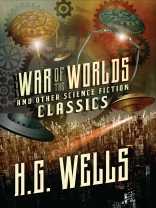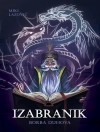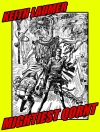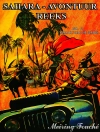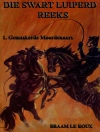Through his fiction, H.G. Wells transformed some of the most pressing social, political, and cultural issues of his day—class struggle, colonial imperialism, nation building, uncontrolled scientific experimentation—into the raw material of brilliant speculative fables.
The six novels collected in The War of the Worlds and Other Science Fiction Classics were all written at the turn of the twentieth century, and with them Wells helped to lay the foundations of modern science fiction.
-
THE TIME MACHINE. In a future hundreds of thousands of years hence, a time traveler discovers a world that is a travesty of contemporary civilization.
-
THE ISLAND OF DR. MOREAU. The god of his own perverse Eden, Dr. Moreau tries to make men of animals and civilize them through laws that invite rebellion.
-
THE INVISIBLE MAN. Gifted with the power to walk unseen among others, a scientist succumbs to the intoxicating power that his invisibility grants him.
-
THE WAR OF THE WORLDS. When Earth comes under siege from extraterrestrial invaders,
the best and worst of mankind comes out among those struggling to survive.
-
THE FIRST MEN IN THE MOON. The Selenite civilization that inhabits the moon is, in some ways, understandable in terms of human society—and in other ways frighteningly different.
-
THE FOOD OF THE GODS. Are the oversized animals and humans that develop from an experimental chemical released into the food chain abominations to be gotten rid of—or the wave of the future?
Circa l’autore
H.G. WELLS (1866-1946) published his first novel,
The Time Machine, to critical and popular acclaim in 1895. Socially progressive, and visionary in intellect, he became one of the most prolific writers of his generation, and explored a wide variety of social, philosophical, and political ideas through the medium of what we now call science fiction.
